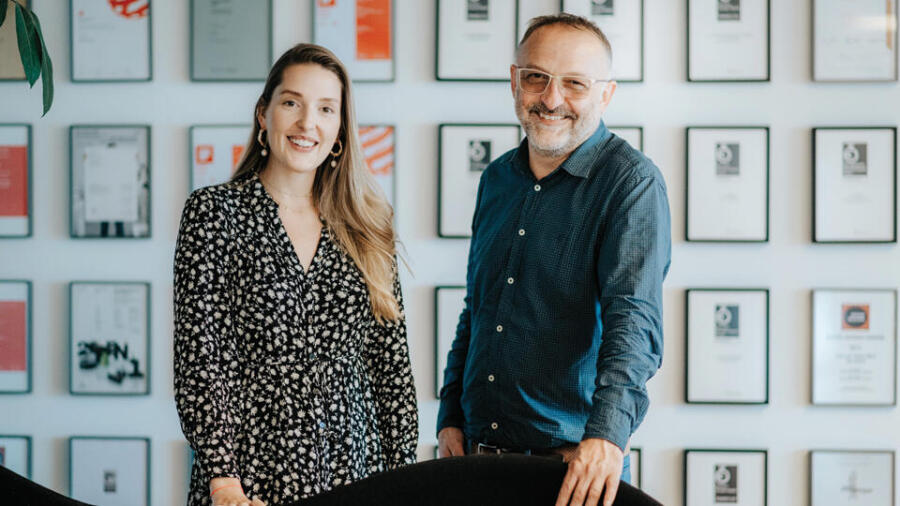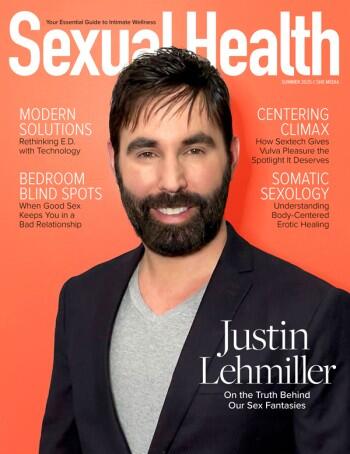My dad, Dirk Bauer, founded Fun Factory a few years after I was born, so it’s safe to say I’ve seen it all. Even in my earliest memories of childhood, I recall just accepting his work as something perfectly normal.
The first hints that my parents’ work was something stigmatized came early on. I knew they made “toys” but they were hesitant to talk about what the products actually did, not wanting the information to get back to my friends, who they said "wouldn’t understand." Eventually I picked up on the fact that my dad’s job wasn’t totally ordinary, and by the time I was about 8 years old, I knew enough to be embarrassed. I tried to avoid the topic of what my parents did for a living when talking with other kids.
After decades of being surrounded by this industry, I’m excited to continue making it safer, eco-friendlier, more inclusive and more innovative.
I wasn’t the only one who felt that way. In the early 2000s, sex toys were still seen as crude and silly. The industry was in its awkward phase, and even consumers looking to buy sex toys couldn’t always avoid a sense of shame. Before Fun Factory and other body-safe brands took off, the average consumer didn’t necessarily ask questions about materials, performance or durability. They were just trying to get their shopping done quickly, without drawing attention to themselves.
Worse still, the sex industry at the time wasn’t doing its part to be inclusive. My colleagues tell me that, back then, manufacturers and retailers marketed primarily to men, with the assumption that they bought toys to use with their wives. At that time, it was less common for a woman to buy a toy for herself, much less a toy to use with another woman or nonbinary person. The industry was not yet queer-friendly, and lots of toys were boringly designed and colored like human penises.
As I grew into an adult, things changed for me. After I spent some time working at a car company and a management consultancy, I realized that I wanted to work for a mission-driven business. Fun Factory was one — its purpose is giving people pleasure and making them happy. I started working for my father’s company to see if it was a good fit for me, and after six weeks, I knew I wanted to stay.
By that time — 2019 or so — the industry had changed, too. The stigma was almost completely gone. Whereas I used to worry about my friends learning that my dad had started a sex toy brand, as of a few years ago, my friends have been asking me for discounts! You can find sex toys at grocery stores or see toy reviews going viral on social media. This new, more open-minded climate makes it a hopeful time to work in the industry.
Now, I look back at my parents’ work during my childhood and see it in a different light. I went to an industry trade show in Shanghai in 2019 and noticed that all the toys are now colorful and playfully shaped. I’m biased, of course, but I believe Fun Factory pioneered that change. My dad jumped into a languishing market in 1996 and invested tons of money and time into revitalizing it. That decision took a lot of bravery, and I’d say it worked.
There’s still more revitalization that can happen, and more progress we can make as an industry. That’s what makes my job as marketing manager feel fresh, even though I’ve grown up around the industry. For one thing, consumers increasingly want sustainable products and we, as an industry, can strive to meet those high standards. Part of our sustainability effort includes educating consumers on buying fewer but higher-quality items, to produce less waste. We also encourage consumers to ask where their toys are manufactured, so they can think beyond materials alone and consider the total carbon emissions.
We can also make up for the industry’s lack of inclusiveness in the past. Manufacturers and retailers can post sex-ed content on social media and blogs that empower all types of people to feel more pleasure. Fun Factory does this! We also design toys that stimulate the body in multiple ways, which keeps users from becoming habituated to one type of play. Experimenting with different sensations helps our customers understand what they like and want, which can help them feel more secure in their sexuality.
We can all continue to work toward increasing industry regulation, so consumers can shop for toys without worrying about exposing themselves to toxic chemicals. I’m happy to carry on my dad’s legacy. After decades of being surrounded by this industry, I’m excited to continue making it safer, eco-friendlier, more inclusive and more innovative.
Jordis Meise is the marketing manager at Fun Factory.








